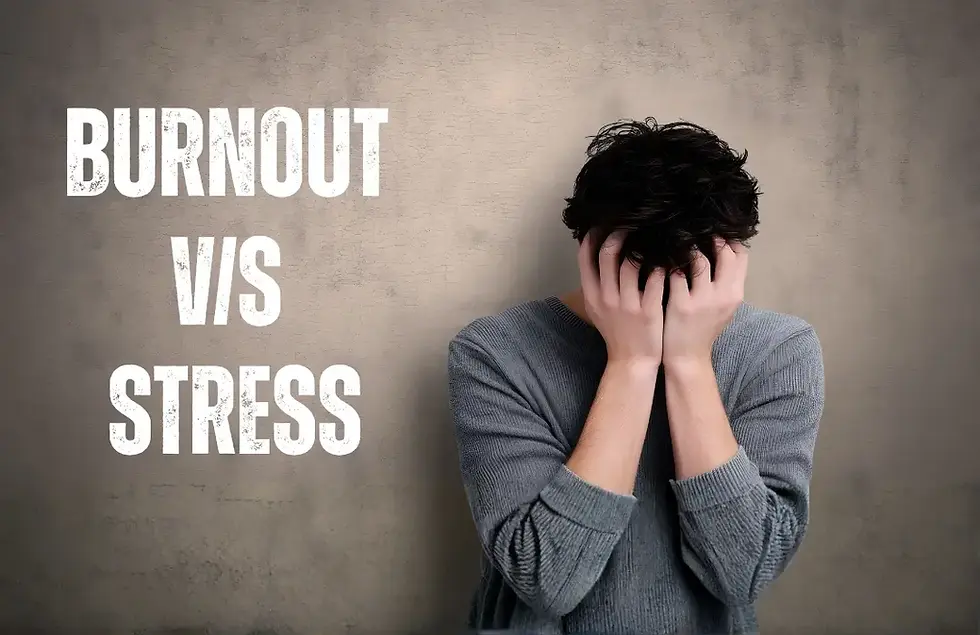Obsessive-compulsive Disorder (OCD): Types, Symptoms and Treatment
- Mosaic Mental Health

- Apr 16, 2024
- 3 min read
Updated: Sep 24, 2025

Obsessive-compulsive disorder (OCD) is a mental health problem, an anxiety-related disorder, to be exact. People with obsessive-compulsive disorder (OCD) typically battle obsessions, compulsions, or undesirable thoughts. Additionally, this cycle of compulsions and obsessions affects their thoughts and actions.
Repetitive actions can seriously impact a person's everyday routine and social interactions. They can also be distressing and time-consuming, affecting one's ability to work, have personal relationships, or mentally perform tasks like counting.
People with OCD have inflexible behaviors and intrusive, recurring thoughts. If left untreated, these problems can impact many aspects of a person's personal and professional life.
Obsessions
Anxious thoughts are called obsessions. Repetitive, bothersome, and hard-to-control thoughts are characteristics of obsessions. These distressing and anxious thoughts are typically centered around one or more particular themes.
There are numerous examples of obsessions that OCD sufferers may experience:
Fear of environmental or human contamination
Religious obsessions
Severe concern that something is missing
Severe attention to symmetry, order, or accuracy
Fear of misplacing or losing something significant
Things that appear unpleasant, impolite, or incorrect
Disturbing pictures or thoughts related to sex / unwanted sexual thoughts
Colors or numerals with special meaning or that appear unlucky
Worrying about getting sick due to intrusive thoughts about infections and germs.
Fear of hurting oneself or one's loved ones or acting aggressively
Some of these obsessions are time-consuming, making it challenging for the sufferer to do crucial everyday tasks.
Compulsion
Compulsions are actions that people with OCD are strongly compelled to perform. When someone engages in these behaviors, their obsession-related distress is usually momentarily prevented or lessened, and they are then more inclined to repeat the behavior in the future.
Compulsions can be overly connected behaviors to an obsession (excessive hand washing because of a fear of contamination) or be entirely unrelated. Usually inflexible, compulsions are formed to minimize discomfort or avoid an unpleasant consequence.
Another name for this behavior is rites. Rituals appear to be the best way for an OCD sufferer to stop thinking, set things right, feel protected, or ensure that horrible things won't happen. Rituals might take the form of mental statements or physical acts.
These are a few instances of compulsions
Repeatedly wash and sanitize
Routinely cleaning household items
Frequently erase, rewrite, or start over
Organizing or placing items in a specific order
Continuously looking for assurance or approval
Checking doors, appliances, switches, locks, etc. frequently
Verify again whether something is closed, locked, tidy, correct, or completed.
Excessive or ritualized brushing of teeth, showering, or using the toilet
Number-related rituals include repeating, counting, favoritism, or avoiding specific numbers excessively
In addition, avoidance of particular persons, locations, or circumstances that upset them and set off obsessions and compulsions is a common feature of OCD sufferers. Staying away from these items could make it harder for them to function in life and harm other aspects of their mental or physical health.
Treatment For OCD
OCD is usually treated with cognitive behavioral therapy (CBT) and medication. When given the right care, OCD patients frequently report having a higher quality of life and functioning better. An individual's capacity to pursue leisure activities, form and maintain relationships, and perform well at their job or school may all be enhanced by proper treatment.
Help Is Available
If you know someone who has an anxiety condition like OCD, we are here to help you. If OCD symptoms are left untreated, these can affect relationships, academics, performance at work, and even day-to-day functioning. Fortunately, there is hope if you or a loved one has been diagnosed with OCD. If you know someone who has an anxiety condition like OCD, we are here to help you.
We are a psychiatric clinic with a principal office in Texas. We also serve patients from Colorado, Washington State, and Iowa and treat various conditions, including but not limited to depression, bipolar disorder, ADHD, sleep disorders, anxiety, and thought disorders.
To accommodate your hectic schedule, we offer in-person and online appointments. Moreover, we also offer telepsychiatry for patient convenience and those patients with safety concerns. Call us today to find out how we can assist you!

.png)



Comments